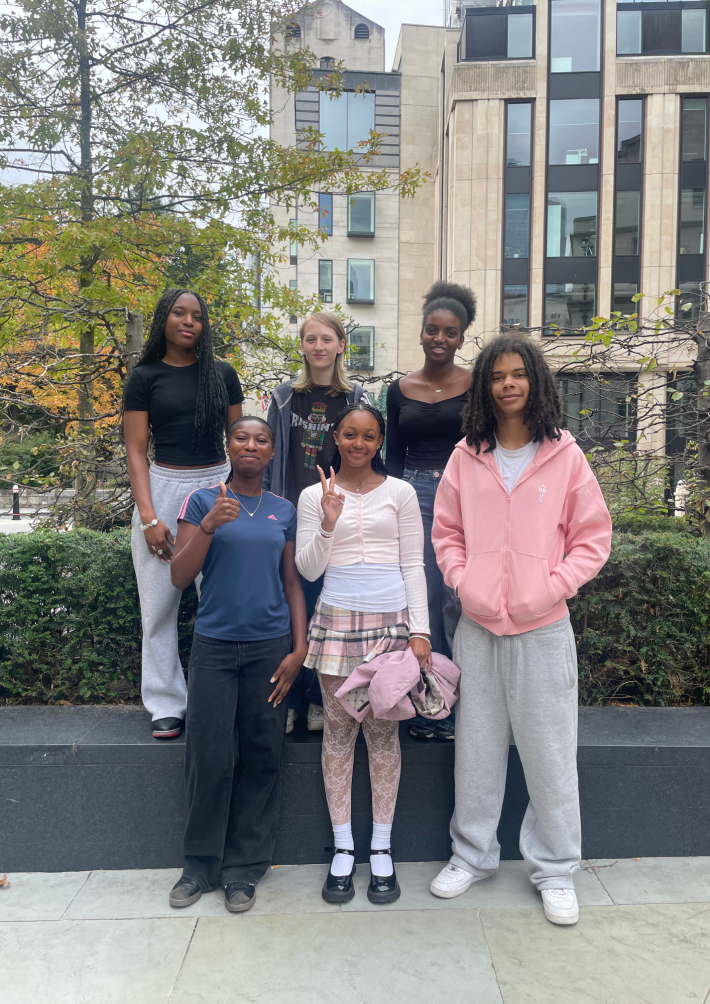This entry is about the Young Residents in Partnership project, which features young people living in social housing to influence decision-making in their respective housing associations. This project is a collaboration of six young residents (who are trained as peer researchers by Partnership for Young London) and three housing associations, Metropolitan Thames Valley Housing, Hyde and Clarion, to work on how youth voice and the needs of young residents can be built into housing policy and practice.
The project centring youth voice is done through peer research, which means that the young residents on the team are not just speaking from their own viewpoints, but rather doing the research to have informed contributions and to speak for a larger group of young people.

Beau
When I first started as a peer researcher in 2024, I was quite unsure of what was ahead of me and how much responsibility I would have as a young researcher. However, from the start, it was clear that we were not just being listened to, but were actually trusted to lead the work, which helped me believe young residents were of genuine interest and were being taken seriously. This is seen where young residents are to be involved in future housing associations policies.
Alongside myself and Theresa, we are a team of 6, all young people from different housing associations (MTVH, Clarion and Hyde), which aid us in the project. All housing associations are collaborating together to understand the challenges and opportunities for young people living in social housing and to use those insights to push for change.
For me, it is not just giving younger people a say but actually listening and putting their thoughts into practice, showing their value. That's why projects like this matter. They don’t just give young people a platform; they show funders and institutions that we can speak with clarity, and creativity about the issues that affect us.
“Youth voice isn’t just about being heard, it’s about being understood, and about shaping the future”.
Funders can play a role in embedding youth voice in policy. That means not just funding individual projects, but helping to influence not just locally and in London, but also nationally create strategies so that young people’s perspectives are integrated into policy.
The next step is that we will be finishing and implementing our recommendations and sharing them through videos, which will be shared and available to see. For the project, we hope this is just the beginning of how we as a group can be used to help make changes.
Theresa
Hi, my name is Theresa, and I joined this project as a peer researcher back in 2023. Taking on such a role at a young age (I was 16 years old at the time) was initially daunting, but being surrounded by such support and keen mentors and listeners made me appreciate the opportunity almost instantly and see it as encouragement to face the challenges we encounter in our work. This shift in mindset has also made me realise the lack of these spaces and opportunities currently available to young people.
“I personally believe that what has made this project so successful is the peer research method used. Having young people be the team that helps identify the root cause and solve the issues that affect their lives makes the project a lot more honest and impactful.
It gives young people the space, the voice, and therefore, the power in the discussion to make the change they want to see.
Our peer research team works closely with the three housing associations to make long-lasting and impactful change at higher levels of organisations. This ensures the change we encourage in the organisation is met with the passion and facilities to be carried out. It also allows us to really get to know our housing associations and how they operate, building strong communication and allowing us to be more realistic with our research
Young people are not defined as a separate stakeholder and therefore do not have policies designed to protect them or their special requirements. This means that young people become “invisible” and fall into the cracks of the system, where their individual needs are forgotten and not met. As the current residents and future tenants, it’s important to recognise young people as equally important customers in a housing association by integrating them into key policies or writing new ones with young people in mind. They are a group of such vitality to a housing association, but lose all priority and importance because they are not written into policy. Writing young people into policy would ensure that the needs of current residents are met while ensuring a strong company customer relationship with future tenants.
I hope funders see this as an opportunity to help push for not only the present but also to redefine what the future looks like for young people. We hope you use your influence to positively invite young people into all conversations, increase our visibility through your platforms and support projects that do so.
Please do get in touch with us if you would like to know more or look at the website for reports, videos and updates.